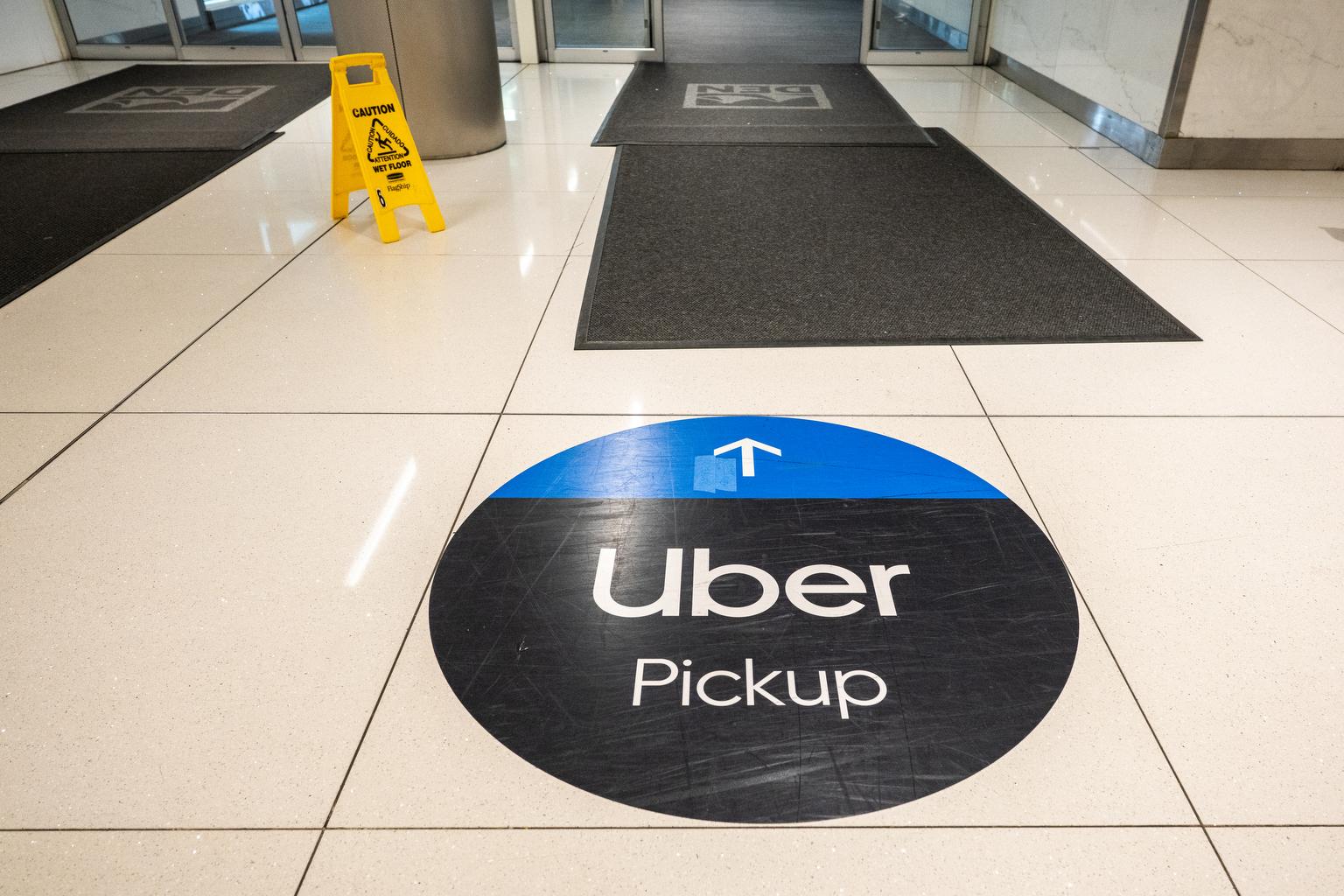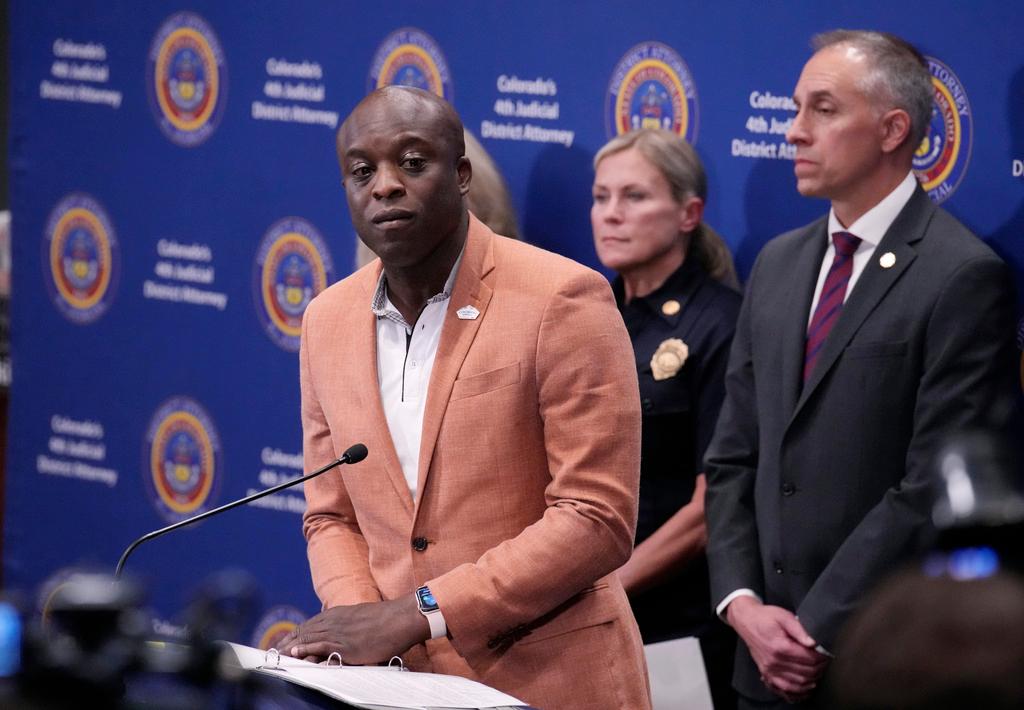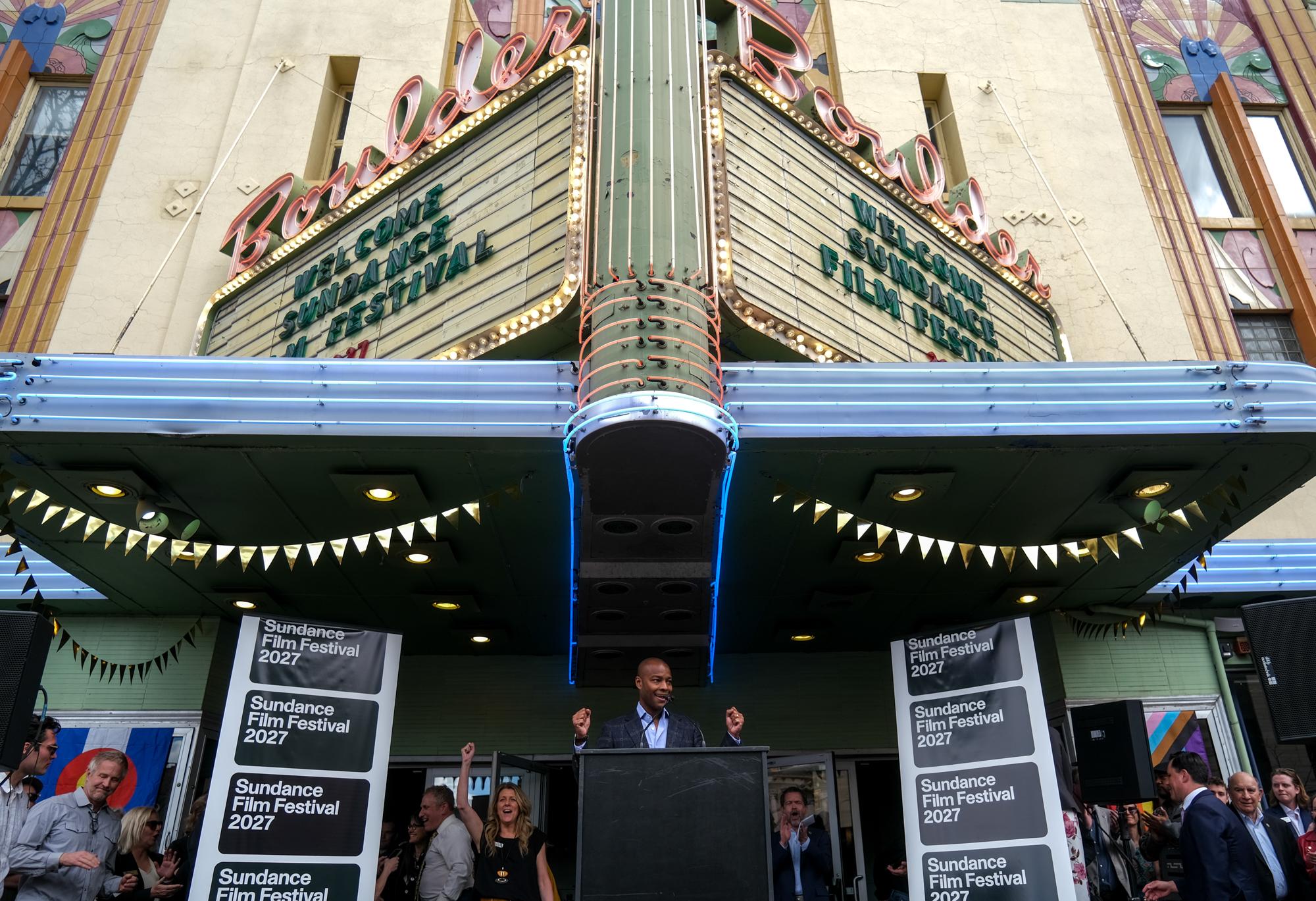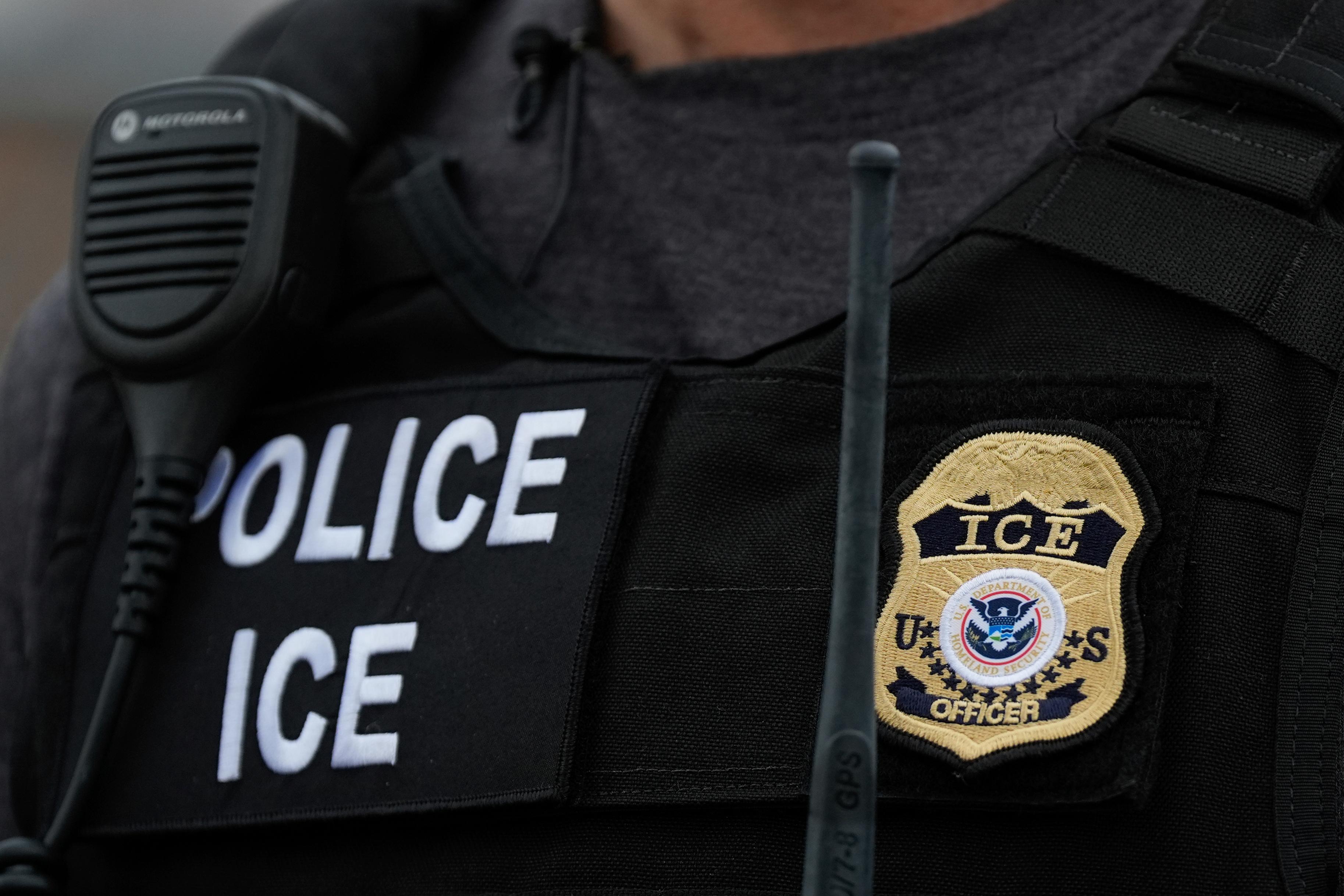
A Colorado judge has ordered federal immigration agents to stop doing civil enforcement in and around courthouses in three Western Slope counties, the first known judicial usage of a Colorado law designed to make courts safe from immigration raids.
Ninth Judicial District Chief Judge John Neiley issued the previously unreported order for Garfield, Pitkin and Rio Blanco counties on April 8. In it, he wrote that the decision by Immigration and Customs Enforcement agents to “locate, identify and detain individuals” in and around the district’s courthouses has caused “confusion, anxiety and fear in what is often already an emotionally charged environment.”
In recent months, people working in the Garfield County courthouse say that ICE has been a steady presence inside the building in downtown Glenwood Springs, detaining between five to 10 people since January who were either in the courthouse or just outside of it.
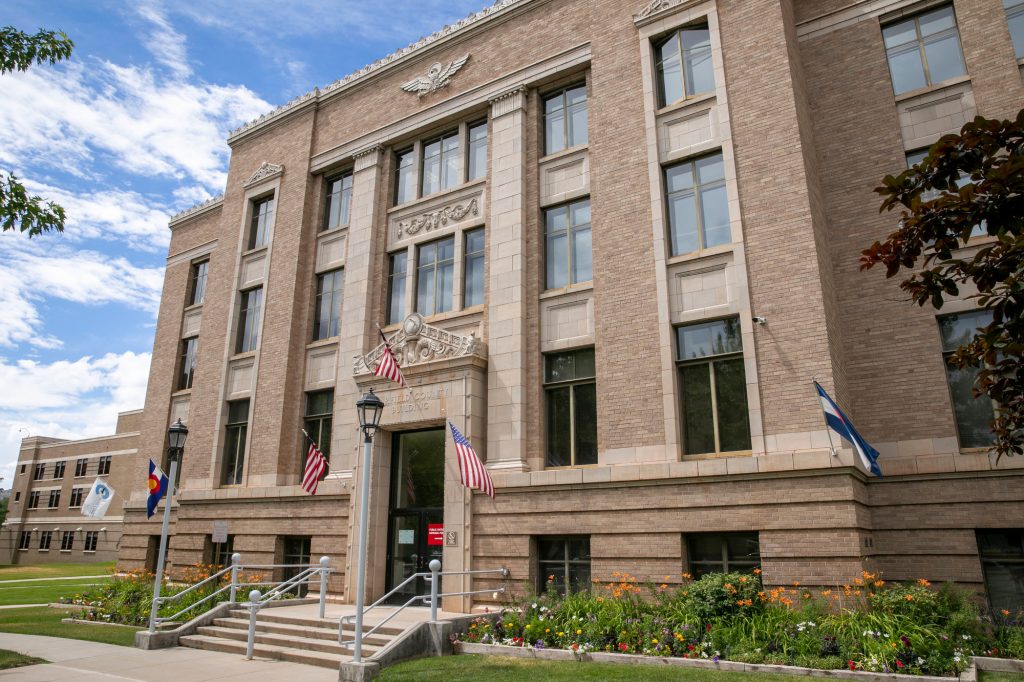
Criminal defendants who are not lawfully present in the U.S. make easy targets for ICE agents under pressure from the Trump administration to increase the number of people detained and deported. But district attorneys have said snatching someone going to or from court can upset the criminal system, denying victims justice and perhaps making crime victims reluctant to file reports that could lead to deportations of a person they know, or the witness themself.
Neiley’s order said ICE agents have been perusing courthouse dockets and other court proceedings to identify defendants to “effectuate detentions and arrests of these individuals.”
All of those detained were defendants in criminal cases, attorneys said. Some were detained inside the courthouse and some were detained outside the building.
Neiley, in an email to CPR News, said he issued the order because there were some worrisome detentions at the courthouse.
“We had a few incidents at the courthouse involving ICE/DHS agents detaining defendants who had appeared for various dockets,” he wrote. “I issued the order to address these enforcement actions and to clarify the boundaries.”
Colorado has a five-year-old state law that prohibits civil enforcement actions by ICE inside or around the perimeter of courthouses. That includes sidewalks, driveways, entryways, green spaces or parking lots. Criminal arrests are still allowed.
But anyone who violates the law is subject to civil action from the state attorney general or a judge’s action like the one Neiley issued.
Colorado Attorney General Phil Weiser said he would defend Colorado’s law if ICE challenged it. And Neiley said in his order that if a U.S. Department of Homeland Security or ICE officer conducted another civil detention in courthouses anywhere in the district stretching from Aspen to Glenwood Springs, they could be subject to a contempt of court finding.
The state law doesn’t prohibit the agents from coming inside courthouses, but Judge Neiley’s order reiterated that armed ICE officers entering the courthouses in his three counties must go through a security screening entrance. They will have to furnish their names and reasons for being there to the courthouse security, as should be required by state law. They are also banned from using cell phones or other electronic devices in courtrooms.
Garfield County Sheriff Lou Vallario didn’t have a comment about the judge’s order but a spokesman said it wouldn’t change anything about how they provide security in the courthouse now.
Vallario said in an earlier statement pointed out by his spokesman that he believes Colorado is a sanctuary state because of laws passed by the legislature, including not allowing him, or any other sheriff, to hold inmates at the jail for longer than their sentences because ICE asked them to.
Vallario said he will hold an inmate for six hours after they’ve posted a bond or completed a sentence if ICE asks, but then he has to let them go.
In the same statement, Vallario also said he wasn’t enforcing the state law around ICE in courthouses.
“This is incredibly confusing because I have no idea how to arrest someone for a civil violation!” he said. “That violation is NOT a criminal violation … law enforcement has no authority to take any action. If an agent does violate this, they can be sued.”
Nothing in Neiley’s order or state law prohibits any law enforcement officer, federal or local, from making a criminal arrest in an immigration case.
But being unlawfully present in the U.S. is not a crime on first offense, and is typically handled with a civil detention, followed by hearings in immigration court either while the detained person is held in custody or is free awaiting a decision on asylum claims or citizenship petitions, followed by possible removal from the country.
Neiley noted that civil enforcement actions “make courthouses less safe, frustrate the process of justice and could have a chilling effect on litigants, witnesses, victims, court personnel and other members of the public who have the right and obligation to participate fairly in the judicial system.”
Ben Sollars, the elected district attorney for Garfield, Pitkin and Rio Blanco counties, said he hasn’t personally seen any detentions inside the courthouse but worries overall about his community fearing the criminal justice system.
“I don’t want victims and witnesses and defendants, for that matter, to be fearful and not want to come to the courthouse. I want to ensure that justice is served in any individual cases and we can’t do that without the participation of victims and witnesses of crimes,” he said. “I want justice to escape no one.”
A representative of the Colorado Judicial Branch said they were unaware of any similar orders issued in other districts in the state. They declined to comment further.
An ICE spokesman also said the agency had no comment on the judge’s order.
In Colorado, there have been reports of ICE’s presence in and around two additional courthouses, Denver and Adams County.
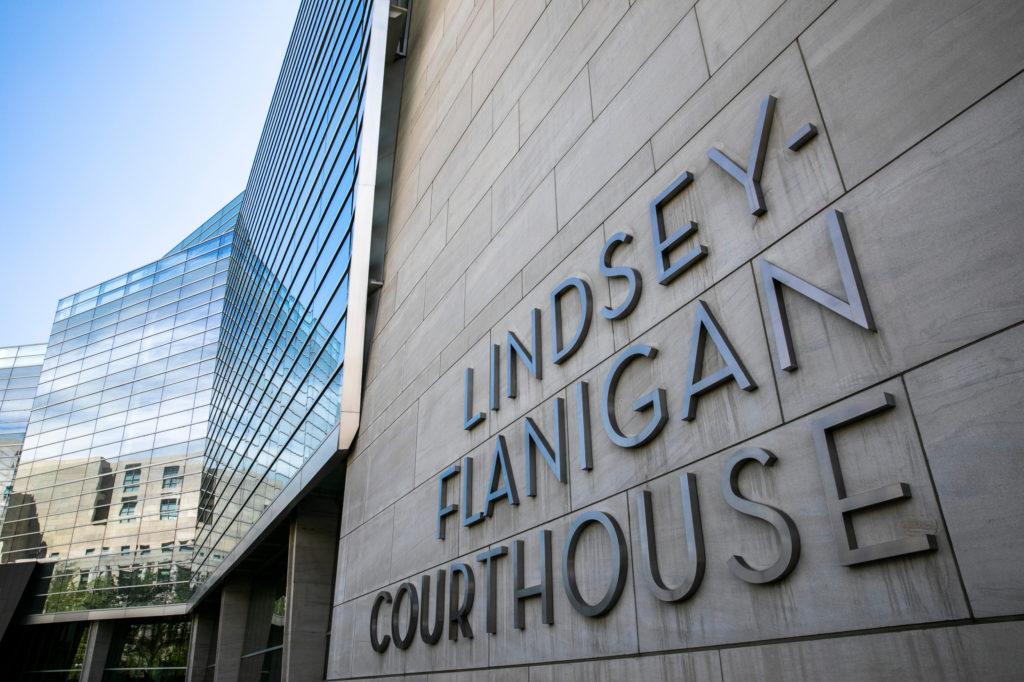
In Denver, Raul Velazquez-Mendez was detained outside the Lindsey-Flanigan Courthouse by ICE agents in recent months as he left court. Velazquez-Mendez faces sex abuse charges, and following his ICE arrest, he attended a court hearing in Denver on that case late last month, while remaining in ICE custody.
And in Adams County, District Attorney Brian Mason said a Latino employee of his office reported to him that he was recently followed in the courthouse parking lot by officials wearing ICE uniforms. He noted it wasn’t confirmed they were ICE agents and there were reports of imposters, too.
“If it was ICE, that’s just straight-up profiling,” Mason said.
Mason has been outspoken about ICE interfering with the Colorado criminal justice system. He’s had at least one defendant charged with crimes be deported before he finished his criminal case.
“I'm deeply concerned about the federal government, specifically ICE, showing up outside the courthouse because of the chilling effect that that has on our ability to seek justice,” he said. “If a victim of a crime is afraid to come to court because they think they're going to be arrested by ICE in the courthouse, then we can't successfully prosecute our cases. If witnesses to a crime are afraid to contact the police or come to court because they think that ICE is staked out in the parking lot, then we can't seek justice in our cases. It has an absolute chilling effect.”
Federal courts have split over whether ICE has the authority to conduct civil immigration detentions in and around courthouses in jurisdictions where they are barred by state or local laws.
Early in Trump’s first term, in 2017, ICE expanded the authority of their agents, nationally, to do civil detentions at courthouses.
The policy was later codified in 2018 as ICE Directive Number 11072.1. The Attorney General of New York and the Kings County District Attorney in Brooklyn sued ICE in federal court in 2019, arguing that the policy “significantly chilled participation” in court hearings, citing one case where an undocumented victim refused to testify in an armed robbery case for fear of an immigration arrest.
U.S. District Court Judge Jed Rakoff granted summary judgment against ICE in that case, stopping the agency from conducting civil enforcement in and around New York state courthouses. In his ruling, Rakoff cited English common law dating back centuries that barred civil arrests at courthouses to encourage attendance and ensure the proper functioning of the courts.
Judge Neiley also dipped into English common law in his order, noting that Blackstone’s Commentaries on the Laws of England noted that “no arrest can be made in the king’s presence, nor within the verge of his royal palace, nor in any place where the king’s justices are actually sitting.”
Blackstone drew no distinction between civil enforcement actions and criminal arrests, though Colorado law does, as does Neiley’s order.
“Nothing in this section precludes a criminal arrest or execution of a criminal arrest warrant issued by a judge or magistrate based on probable cause of a violation of criminal law,” Neiley wrote.
Still, recent cases indicate that Neiley’s order could lead to future judicial review of Colorado’s law barring civil enforcement at courthouses. That’s what happened in a 2019 Massachusetts case that never reached a resolution.
State prosecutors in Boston sued ICE over its courthouse civil enforcement policy. A federal district judge initially issued an injunction blocking ICE from doing civil detentions. That ruling was overturned on appeal and the case was remanded back to the lower court. Before further proceedings could continue, the Biden administration prohibited courthouse immigration enforcement in 2021 and the case was voluntarily dismissed by the plaintiffs.
Upon taking office again, the second Trump administration quickly issued interim guidance to ICE agents allowing them greater discretion in taking people into custody on administrative warrants at courthouses.
“Under this interim guidance, ICE officers or agents may conduct civil immigration enforcement actions in or near courthouses when they have credible information that leads them to believe the targeted alien(s) is or will be present at a specific location, and where such action is not precluded by laws imposed by the jurisdiction in which the civil immigration enforcement action will take place,” reads the directive issued on Jan. 21, a day after Trump’s second inauguration.
The ICE interim policy, though, should be read to preclude actions in and around Colorado courthouses, because Colorado’s state law specifically prohibits civil detentions there. The ICE policy says to obey state laws around courthouse actions.
Colorado’s law says: “A person shall not be subject to civil arrest while the person is present at a courthouse or on its environs, or while going to, attending, or coming from a court proceeding.”
That legislation was sponsored by State Sen. Julie Gonzales, D-Denver. In an interview, she applauded Judge Neiley for reminding ICE that the agency must comply with the law, just like every other law enforcement agency.
“I am shocked and disappointed, but not surprised,” said Gonzales of ICE conducting operations in courthouses. She added that she had heard of it happening in other judicial districts in Colorado too. “I find it unconscionable that ICE would seek to undermine access to justice.”
| This story is part of a collection tracking the impacts of President Donald Trump’s second administration on the lives of everyday Coloradans. Since taking office, Trump has overhauled nearly every aspect of the federal government; journalists from CPR News, KRCC and Denverite are staying on top of what that means for you. Read more here. |
Funding for public media is at stake. Stand up and support what you value today.

